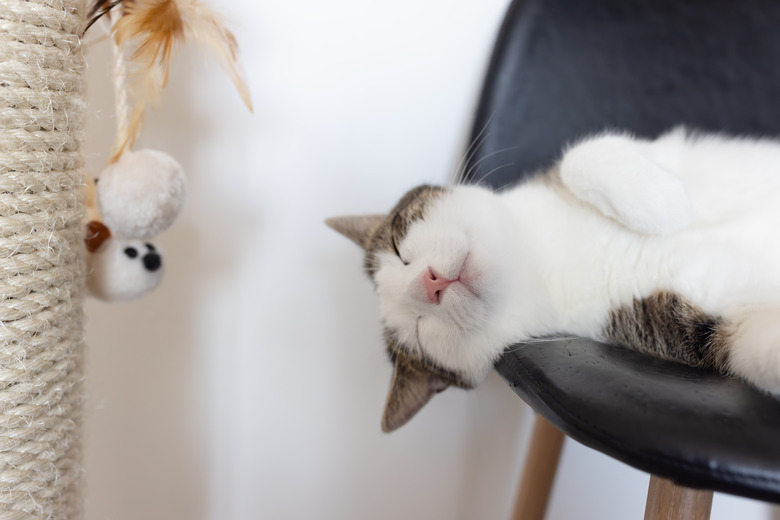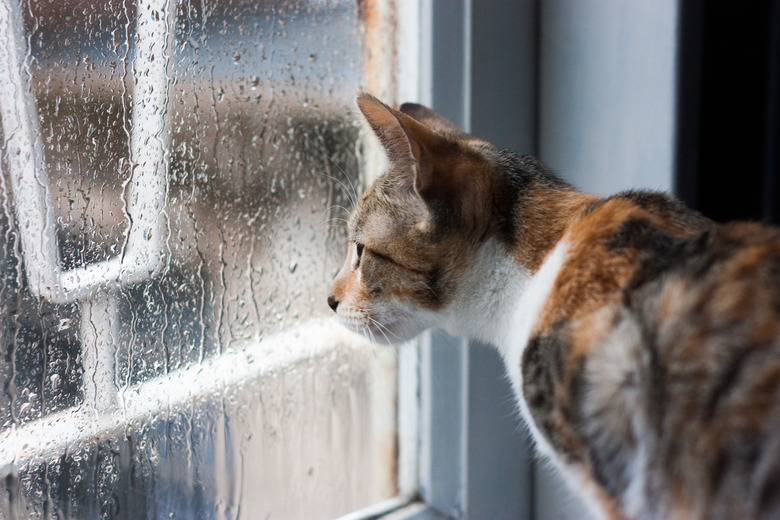6 Helpful Hints For New Cat Parents
If you've welcomed a new cat into your life, or are preparing to do so, congratulations! Having a feline friend can be a wonderful experience for many reasons, but if you're new to it all you may be wondering what to expect. While the exact answer to that will depend on your specific situation, there are a few things that new cat parents can keep in mind to make those early days, weeks, and even months a little easier on you both.
All new things require patience
All new things require patience
Any change takes time to get used to, and welcoming a new cat to your family is no different. New cats, whether a young kitten, an adopted cat from a shelter, or a cat purchased from a breeder, will be acclimating to a completely new environment and routine, so give them time to get adjusted. Do your best to not force boundaries by yelling, squirting with water, or startling, especially early on, but rather, reward her when she does well with a small treat, praise, petting, or whatever she finds to be of high value (this will be fun to figure out!) It will definitely take the two of you a little time to find your stride with each other, so remember that getting to know someone new takes some adjustment, and the bond you build will be worth it.
A prepared space reduces stress
A prepared space reduces stress
One way to make that adjustment period a little easier on everyone is to have your cat's new home prepped with items they will need to be comfortable. This includes basics, like food, water, dishes, and a litter box, all of which your cat will use daily and will likely be a huge part of their life's routine. Additional accommodations can make things easier on a cat and yourself as well, like having toy mice to play with or a cat tree to climb up and rest on, as well as a cat carrier to explore, which will come in handy when it's time to visit the veterinarian or go for a ride. Even removing things from high places where your cat might jump up onto can make for a safer and more welcoming experience, and if you have houseplants, research which are cat-safe and remove any that aren't.
Cats are territorial creatures
Cats are territorial creatures
Wild cats must hunt for food, and for that reason, they guard their territories in order to survive. Indoor cats, of course, don't require stalking and bagging prey every time they eat a meal, but still, the primal urge to keep their territories to themselves is still there and should be considered when inviting one to a home with animals in it. When introducing cats, be sure to do so slowly and over a period of time, with structures like walls or doors separating them, especially in those early days, to prevent injuries and let them get to know each other slowly and safely.
Cats need enrichment
Cats need enrichment
Part of offering your cat a high quality of life is meeting his innermost needs, which requires an understanding of what cats are naturally inclined toward. Cats obviously need food, shelter, and medical care in order to survive, but they also have personal needs thanks to something called evolutionary traits. These traits are inherited from their wild cat ancestors, and can still be seen in cats today, although they are sometimes misunderstood. Pouncing, stalking, hunting, scent-marking, and zooming around at dusk are all examples of typical evolutionary traits in cats, and ignoring them can often leave cats bored, frustrated, and even depressed, especially if they live indoors full-time. Enrichment activities like toys, hiding spaces, scratching pads, and chasing games are all elements that can meet many of these needs in cats, so be on the lookout for what behaviors your cat exhibits to understand what they would enjoy.
Keep a cat budget
Keep a cat budget
OK, maybe most people don't keep a budget strictly for their cats, but keeping your new cat in mind when considering your own budget will ensure that her needs are never compromised. Like any pet, a new cat will require food, litter, toys, and medical care, especially if you are adopting a young cat who may still need shots and spay or neuter services. If you rent your home or apartment, making sure a cat is allowed in your space and any future spaces you're going to live in can prevent having to separate from your cat, which can be devastating for everyone.
Socializing your new cat is important
Unlike dogs, domesticated cats don't really require a rich social life filled with feline friends or other animals. In fact, many cats, although certainly not all, prefer solitude in their living spaces, and keeping their territories to themselves is a natural part of being a feline. However, socializing your cat with the people in your life, and animals if they prefer it, is important as it may reduce timidity or aggression in some cats, especially when it comes to being handled. Anyone who's ever cat sat an unsocialized cat can tell you that it's not easy, and is obviously stressful for the cat, so take care to introduce your cat slowly and carefully to guests by offering treats, using a quiet, calm voice, and sitting on ground level with when saying hello them if possible.


